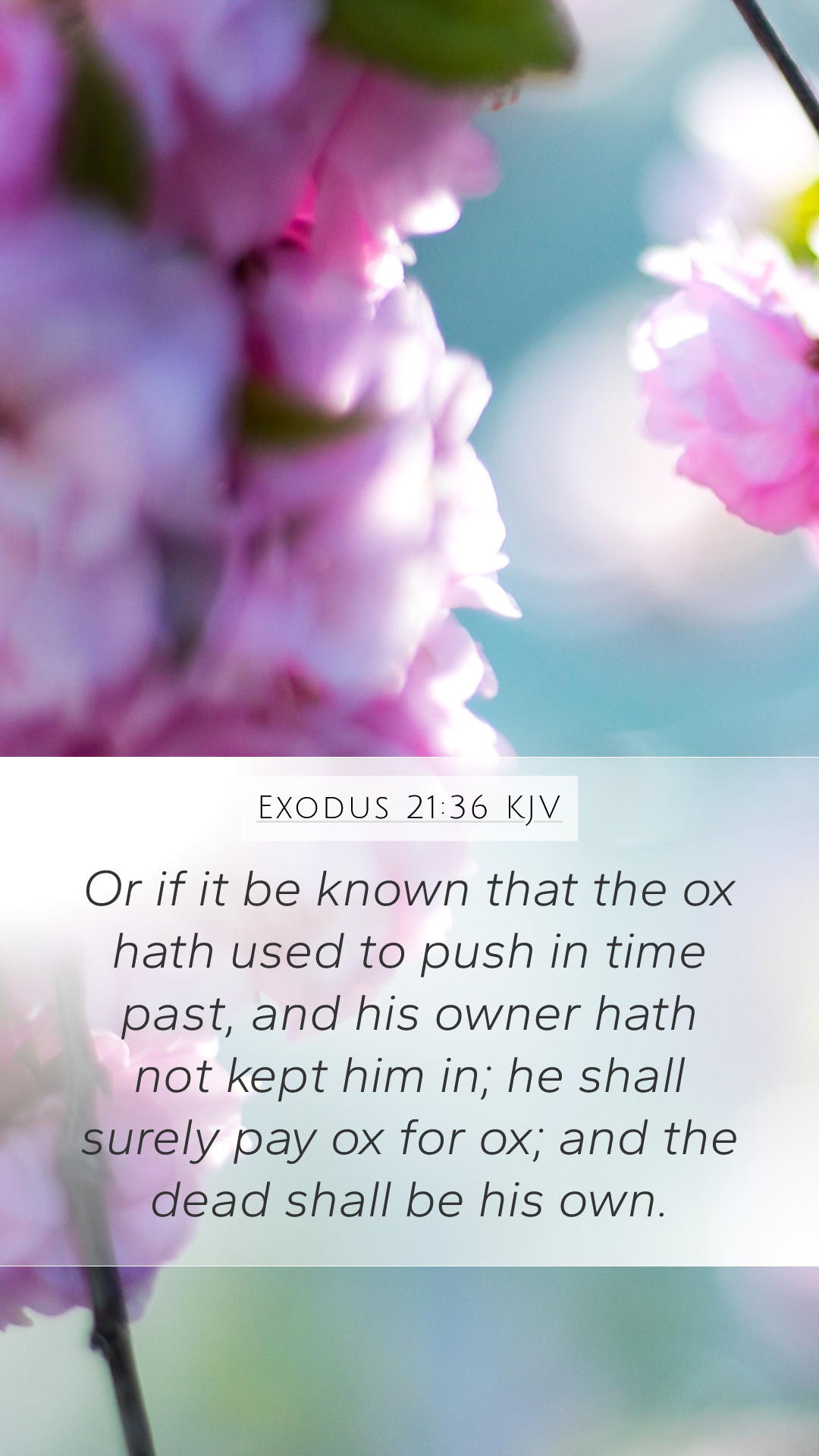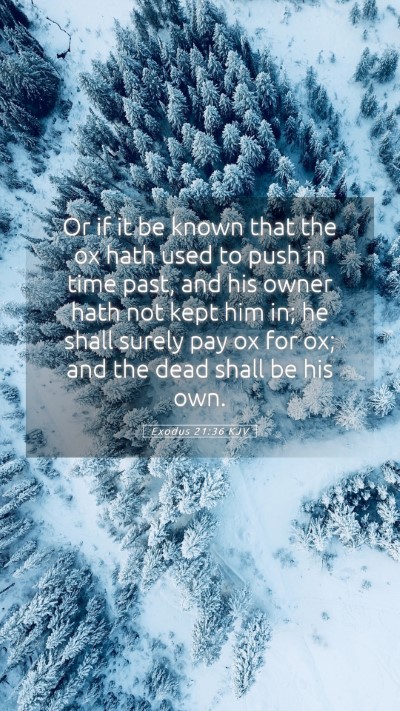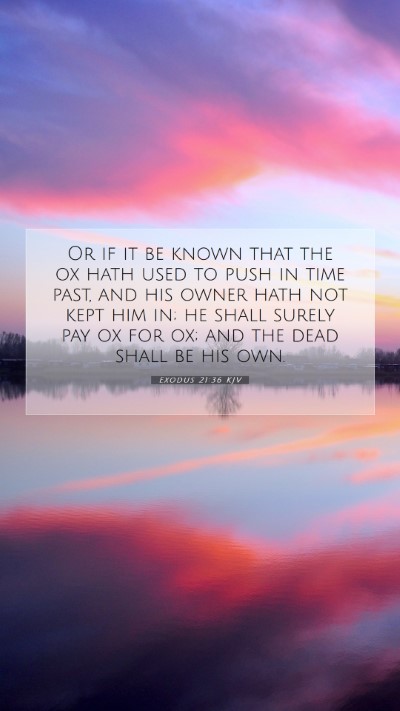Understanding Exodus 21:36
Exodus 21:36: "If it be known that the ox hath used to push with his horn in time past, and it hath been testified to his owner, and he hath not kept him in, but that he hath killed a man or a woman; the ox shall be stoned, and his owner also shall be put to death."
Context and Overview
The verse comes from a section of Exodus that outlines laws pertaining to personal conduct and social justice. It emphasizes accountability, not only for the actions of animals but also for the negligence of their owners. Understanding this verse requires examining the legal principles of restitution and consequences for carelessness.
Bible Verse Commentary
In interpreting Exodus 21:36, several key points emerge from public domain commentaries:
- Matthew Henry: Emphasizes the moral principle of personal responsibility. Owners have a duty to control their animals, and failure to do so can lead to severe consequences, reflecting broader themes of justice and care in the community.
- Albert Barnes: Focuses on the specific liabilities of owners regarding their animals. If an ox is known to be dangerous, the owner's negligence in not restraining it demonstrates a lack of foresight and responsibility.
- Adam Clarke: Highlights the seriousness of the law in maintaining order and protecting society. Clarke notes that the punishment not only applies to the ox but also to its owner, which underscores the dual responsibility of both animal and caretaker.
Key Insights and Applications
- Accountability: This verse illustrates the importance of being accountable for one's possessions and their behaviors. Owners are expected to take preventative measures against potential harms.
- Community Safety: The laws set forth ensure that the community remains safe from dangers posed by uncontrolled animals. This principle can be applied to various aspects of life where one’s actions or neglect can affect others.
- Legal Standards: The verse serves as an early model of legal standards for culpability, which continues to resonate in modern judicial systems. It reflects the principle that neglect can lead to dire consequences.
Cross References
- Exodus 21:29: Discusses situations in which an ox has killed a person and the owner’s responsibility.
- Leviticus 24:17-22: Addresses penalties for murder and the concept of "an eye for an eye," related to personal responsibility.
- Deuteronomy 22:1-4: Discusses responsibility for lost items, further emphasizing the need to protect one’s neighbor and their property.
Conclusion
The study of Exodus 21:36 offers profound insights into biblical principles of accountability, justice, and community welfare. By examining the meanings of scripture through this verse, we can cultivate a deeper understanding of our responsibilities to one another and the significant moral lessons found in the Bible. This verse encourages continual reflection on how our actions – or inactions – can impact others, promoting a life of intentionality and care.


